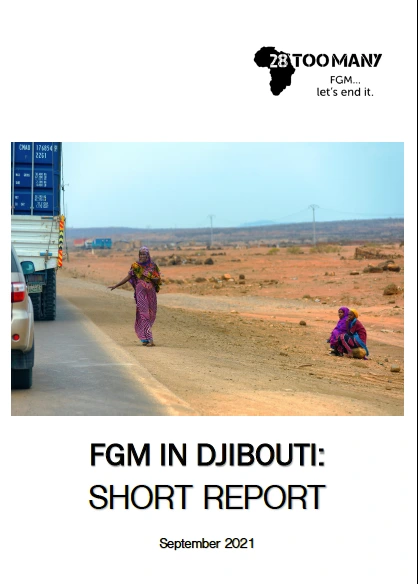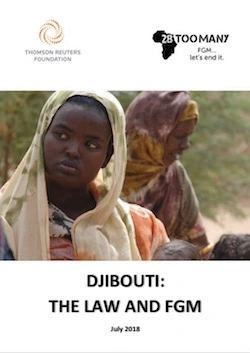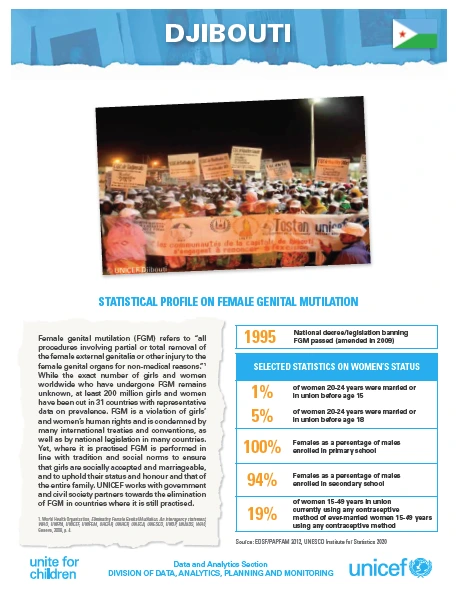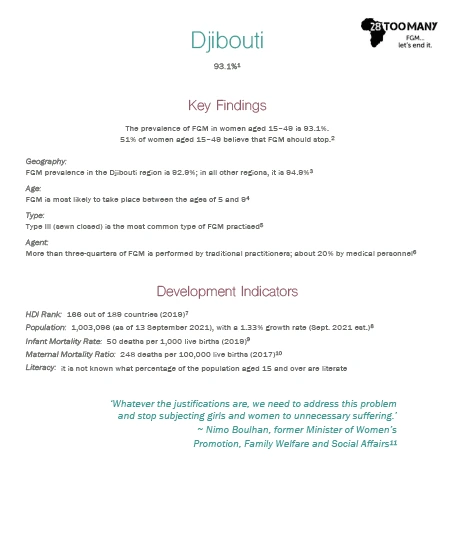Home | Research & Resources | Djibouti
Key Findings
The prevalence of FGM/C among women aged 15-49 in Djibouti is 93.1%.
51% of women aged 15-49 believe that FGM/C should stop.
Geography
FGM/C prevalence in the Djibouti region is 92.9%; in all other regions, it is 94.9%
Age
FGM/C is most likely to take place between the ages of 5 and 9
Type
Type III (sewn closed) is the most common type of FGM/C practised
Agent
More than three-quarters of FGM/C is performed by traditional practitioners; about 20% by medical personnel
Distribution of FGM/C across Djibouti
The prevalence of FGM/C among women aged 15-49 in the capital region of Djibouti is 92.9%. The prevalence in the rest of the country is 94.9%. Women aged 15-49 who live in rural areas are more like to undergo FGM/C (95.5%) than those who live in urban areas (93.1%).
The prevalence of women aged 15-49 who have at least one daughter who has undergone FGM/C is 48.5%.
In 2006, the prevalence of FGM/C for women aged 15-49 was measured to be 93.1%. In 2002 it was measured to be 98.1%. However, due to the different methods used in each survey, this may not represent a real drop in prevelance.
Trends in FGM/C Prevalence in Djibouti
FGM/C Legislation in Djibouti
The Djibouti Government passed legislation in 1995 prohibiting FGM/C (Article 333 of the Penal Code). In 2009, Law No. 55 introduced further amendments, including criminalising the failure to report FGM/C to the authorities. Evidence suggests, however, that, due to ineffective implementation of the law, there have been no convictions in Djibouti to date.
Development Indicators
Population Growth
1,003,096 (as at 13 September 2021), with a 1.33% growth rate (2021 est.)
Infant Mortality
50 deaths per 1,000 live births (2019)
Maternal Mortality
248 deaths per 100,000 live births (2017)
HDI Rank
166 out of 189 countries (2019)


.webp)
.webp)


_arabic_cover.webp)
_french_cover.webp)

_french.webp)
.webp)

_arabic.webp)